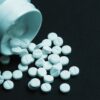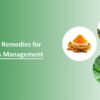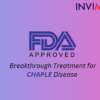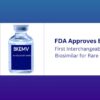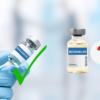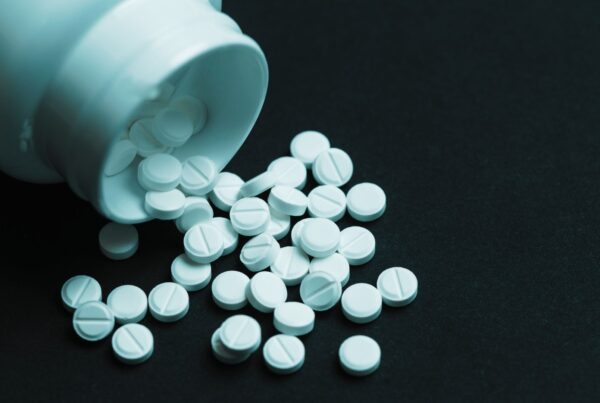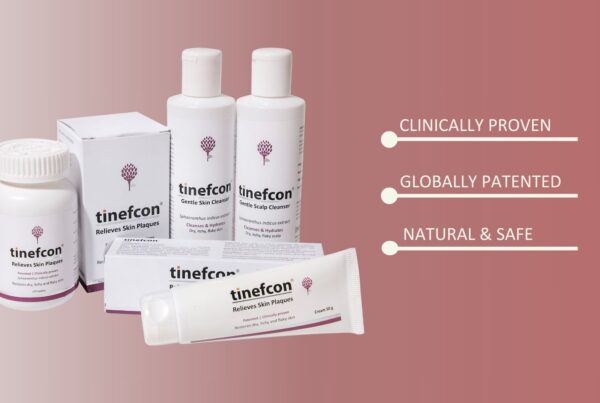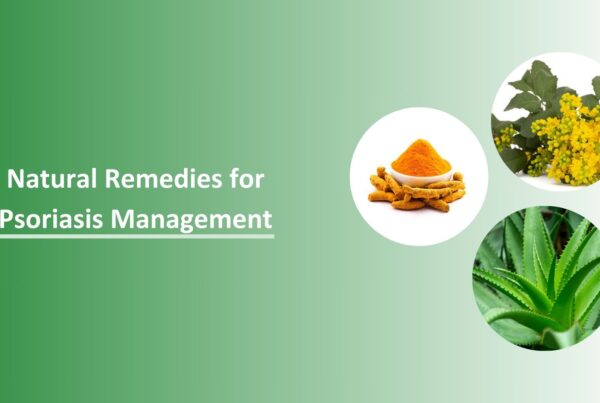In the intricate realm of pharmaceuticals, regulatory compliance stands as the cornerstone of safety and efficacy, and Invimeds shines as a beacon of excellence. Meticulous attention to compliance is imperative, and Invimeds is at the forefront, safeguarding public health through an unwavering commitment to adherence and the relentless pursuit of quality pharmaceuticals.
This blog explores key considerations for compliant drugs and sheds light on the nuances of regulatory guidelines, potential risks, and case studies of counterfeit drugs.
Compliance Drugs:
Compliance drugs, also known as compliant drugs, align with the regulatory requirements of the country they are intended for use. These medications gain authorization from regulatory agencies, meticulously following prescribed guidelines to ensure safety, efficacy, and superior quality.
Adhering to compliance standards is crucial for upholding pharmaceutical industry integrity and public health safety. Governed by standards set by authorities such as the Central Drugs Standard Control Organization (CDSCO), compliant drugs form the backbone of a robust pharmaceutical ecosystem, contributing to overall safety and efficacy.
The literature on adherence in elderly patients reveals that compliance rates typically fall within the range of 38% to 57%, with an average rate of less than 45%.
Statistical Imperatives:
Analyzing FDA data reveals a noteworthy surge in non-compliant drug samples, escalating from 16% to 35% between 2020 and 2021. This surge underscores the pressing need for rigorous adherence to quality and compliance standards within the pharmaceutical market – a need that Invimeds addresses with unwavering commitment.
Estimates of medication non-adherence, particularly over extended durations, depict a significant decline to approximately 50%. This signifies a critical challenge in sustaining adherence to medication regimens, further emphasizing the need for a comprehensive understanding of the prevalence of non-compliant drugs.
Navigating Regulatory Guidelines:
Regulatory compliance in the pharmaceutical industry is a critical aspect of ensuring drug safety, efficacy, and quality control. Pharmaceutical companies must adhere to a complex framework of regulations and guidelines to protect patients and operate ethically and responsibly.
FDA Compliance Programs
The U.S. Food and Drug Administration (FDA) provides compliance programs that offer guidance and instructions to FDA staff for obtaining information to help fulfill agency plans in specified areas, such as human drugs and clinical investigator inspection.
Regulations & Guidelines
In India, drug regulatory requirements are overseen by the Central Drugs Standard Control Organization (CDSCO) under the Ministry of Health & Family Welfare. The National Pharmaceutical Pricing Authority (NPPA) enforces the Drugs (Price Control) Order 1995 to ensure fair pricing and accessibility, maintaining a list of controlled drugs. The Drugs & Cosmetics Act of 1940 governs the import, manufacturing, distribution, and sale of drugs, with Schedule M specifying requirements for facilities. Clinical trials adhere to Schedule Y, prioritizing participant safety. The Ministry of Health, in collaboration with DCGI and ICMR, has drafted guidelines for human subject research. The Narcotic Drugs and Psychotropic Substances Act of 1985 regulates substances with abuse potential.
Internationally, WHO provides global healthcare standards, ICH guides pharmaceutical registration, OECD addresses economic and healthcare issues, EMEA offers EU medicine guidelines, WTO manages global trade rules, and MHRA ensures efficacy and safety in the UK.
This diverse array of global organizations collectively contributes to the development and maintenance of stringent healthcare standards, ensuring the safety, efficacy, and quality of pharmaceuticals on a global scale.
Risks of Non-Compliance Drugs
Non-compliance within the pharmaceutical sector poses grave risks and consequences that extend well beyond mere financial loss, affecting both patients and stakeholders. Failing to adhere to regulatory standards and guidelines can lead to extensive implications.
In individuals dealing with chronic conditions like hypertension, diabetes, HIV/AIDS, and psychiatric disorders, a prevalent issue has been identified frequent noncompliance with medication regimens.
The occurrence of non-adherence stood at 38.4% among young adults and 22.3% among older adults. Interestingly, young adults exhibited higher rates of both unintentional and intentional non-adherence compared to their older counterparts.
Risks to Patient Health:
- Medical Complications: Neglecting medication adherence can result in a myriad of medical complications, including drug resistance, harmful interactions between medications, and the occurrence of adverse side effects. Patients may experience exacerbated health issues due to the improper use of prescribed medications.
- Increased Hospitalization: Non-compliance often translates to more frequent hospital admissions, prolonged stays, and the necessity for more intricate medical interventions. This not only strains healthcare resources but also places an additional burden on patients and their families, impacting the overall healthcare system.
Impact on the Pharmaceutical Industry:
- Drug Approval Delays: Non-compliance within the pharmaceutical industry, particularly in research and development, can lead to delays in the approval of new drugs. This not only impedes the timely introduction of innovative medications but also affects patient access to potentially life-saving treatments.
- Reputational Damage: Failing to comply with regulatory standards has a direct impact on a company’s reputation. Trust is a cornerstone in the pharmaceutical industry, and any lapse in compliance can erode confidence among healthcare professionals, regulatory bodies, and the general public, potentially tarnishing the company’s image.
- Financial Consequences: Non-compliance may result in substantial financial judgments, impacting a company’s bottom line. The costs associated with legal battles, fines, and potential product recalls can be considerable, leading to enduring financial implications.
Concerns Regarding Quality and Efficacy:
- Temperature-Sensitive Products: Mishandling temperature-sensitive pharmaceuticals presents a significant risk. Inadequate cooling during transport, inaccuracies in documentation and labeling, improper storage, and a lack of cold chain management can compromise the efficacy of medications, potentially resulting in spoilage and diminished effectiveness.
- Supply Chain Disruptions: Non-compliance in the handling of pharmaceutical products can disrupt the entire supply chain. This not only affects the availability of medications but can also lead to market shortages, ultimately impacting patient access to essential drugs.
Legal Consequences:
Non-compliance can trigger legal actions, with companies facing lawsuits, fines, and regulatory penalties. Adhering to regulations is not only an ethical responsibility but also a legal obligation that must be taken seriously to avoid severe consequences and maintain the integrity of the pharmaceutical industry.
The Pervasive Threat of Counterfeit Drugs
Counterfeit drugs pose a grave threat to patient safety, necessitating unwavering adherence to regulatory guidelines. The utilization of substandard and counterfeit medications has resulted in dire consequences, including adverse side effects, treatment failure, drug resistance, toxicity, and, tragically, death. Criminal networks engaging in the manipulation and resale of pill bottles containing lifesaving drugs have contributed to a staggering $431 billion in global fraud.
The repercussions of consuming such illicit medications extend to antimicrobial resistance, organ failure, drug-resistant infections, overdose, and fatalities. The pharmaceutical counterfeit market, estimated between US$200 and US$432 billion, is now the foremost illicit activity globally.
- In 2000, India, Nigeria, and Pakistan collectively contributed 35.0%, 23.1%, and 13.3% to global counterfeit medicine sales, particularly focusing on antibiotics. A decade ago, Indian authorities estimated that 9% of drug products failed quality standards.
- In 2008, a pilot study in Delhi and Chennai revealed alarming figures, with 12% and 5% of samples from the respective cities found to be of substandard quality. The severity of the issue was emphasized by four reported deaths in Maharashtra in 2007, directly linked to spurious drugs.
- Fast forward to August 2023, India’s drug regulator executed a successful raid in the eastern region, seizing counterfeit medicines valued at over 20 million rupees ($241,666). This incident serves as a stark reminder of the ongoing threat posed by counterfeit drugs in the country. More tragically, in 2012, 300 infants in Kashmir reportedly died due to the substandard quality of ceftriaxone used to treat pneumonia.
Invimeds is reshaping the landscape of pharmaceutical excellence, placing regulatory compliance at the core of our mission. Committed to upholding the highest industry standards, Invimeds stands as your ally, ensuring that each medication we provide epitomizes safety, efficacy, and superior quality.
Exemplary Compliance Practices:
Invimeds meticulously aligns with and embraces all regulatory directives for compliance drugs. Our commitment transcends traditional norms, assuring that every pharmaceutical product surpasses the stringent requirements established by esteemed regulatory agencies.
Transparent Compliance Processes:
At Invimeds, we place transparency at the forefront of our commitment to excellence in pharmaceutical compliance. Our guiding principle is to ensure that patients are well-informed about our rigorous adherence to regulations under the Drugs & Cosmetics Act and our ethical compliance with guidelines outlined in clinical trial specifications.
Our dedication to transparency goes beyond mere communication; it involves providing a clear, detailed, and professional account of our compliance processes. We take the initiative to explain, in a lucid manner, how we navigate the intricate landscape of regulatory frameworks to ensure strict adherence to established standards. Patients can have confidence that our processes are not only thorough but are also designed with their safety as the top priority.
Invimeds is committed to offering transparent insights into every facet of our compliance procedures. This includes a comprehensive understanding of the protocols dictated by the Drugs & Cosmetics Act and the ethical guidelines governing clinical trials. Our unwavering dedication to transparency underscores our commitment to maintaining the highest standards of safety, efficacy, and quality in the pharmaceuticals we deliver.
Patient-Centric Approach:
Recognizing the paramount importance of your health, Invimeds prioritizes regulatory compliance and integrates it as a fundamental element of patient care. Our patient-centric approach guarantees that each medication is meticulously crafted with the well-being of the end-user in mind.
Global Standards, Local Mastery:
Operating with a global perspective, Invimeds seamlessly integrates international best practices with local expertise. Our pharmaceutical solutions are intricately designed to navigate the intricacies of regulatory landscapes, guaranteeing that patients receive medications of unparalleled quality.
Safeguard Your Future with Invimeds:
In a world where pharmaceutical compliance is non-negotiable, Invimeds emerges as the epitome of trust. Elevate your standards and safeguard your future with Invimeds – where each medication is a testament to our unwavering commitment to certified compliance and pharmaceutical excellence. Your health deserves nothing less. Choose Invimeds, where regulatory adherence meets resolute commitment.
Choose Invimeds: Uplift Healthcare Standards:
Invimeds offers more than just pharmaceuticals; it represents a commitment to elevating healthcare standards through certified compliance. Our professional approach, unwavering commitment to adherence, and dedication to quality make Invimeds the preferred choice for those seeking pharmaceutical excellence.
Elevate your standards, and secure your future with Invimeds, your trusted partner in certified compliance and pharmaceutical excellence. Choose Invimeds, where compliance meets commitment, and health takes precedence.
Written By
Aswini PriyaMedical Content Writer
Reviewed By
Dr. AnchalMedico Expert
Last Updated
12 Feb 2024 | 11:40 AM (IST)

